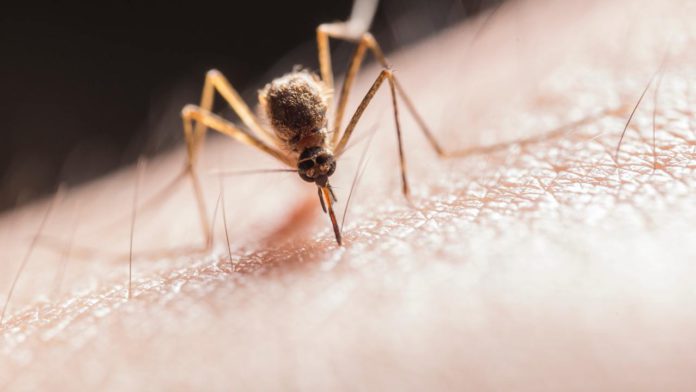The National Malaria Elimination Programme (NMEP) has given an assurance that even though a new mosquito breed detected in Tuba and Dansoman in Accra is a challenge, there is no cause for alarm.
The Deputy Programme Manager of NMEP, Dr Nana Yaw Peprah, told the Daily Graphic last Thursday that with more environmental management practices by the populace and adherence to the malaria control measures already in place, it would not affect the malaria situation in the country.
“Yes, we should be alarmed because it is a stubborn mosquito that will increase the mosquito population in the country which means an increased risk of malaria. But we only have to ensure that we do more environmental management,” he advised.
In a discussion on the new breed of mosquito, Anopheles Stephensi, found in the country, Dr Peprah said in the event that people experienced signs and symptoms of malaria, they should get themselves tested and treated very fast so that they would not have the parasite in them and further put other community members at risk.
Anopheles Stephensi
The Ghana Health Service (GHS), through its surveillance system, said it had detected the presence of a new breed of mosquito that transmits malaria, Anopheles Stephensi, in Tuba and Dansoman.
It is the first time the country has detected the mosquito breed which, according to Dr Peprah, is usually not in West Africa but abounds in Asian countries.
The Anopheles Stephensi, he explained, bred in relatively clean environment and did not survive in high temperatures and conditions.
In Ghana, with regard to malaria, there are four types of mosquitoes the country is concerned with.
Dr Peprah mentioned them as Anopheles gambiae, Anopheles arabiensis, Anopheles melas and Anopheles funestus.
“So if you have a mosquito which is as rough as the Anopheles, which can breed in dirty waters and also survive high conditions and Anopheles stephensi also becomes part of that mosquito population, it will increase the population”.
“And wherever there is an increase in mosquito population, there is a risk of an increase in malaria prevalence because it is the mosquitoes that pick the parasite from one person and transmits to another,” he explained.

Measures
On what the public should do in order not to get infected with the new breed of mosquito, Dr Peprah said the measures were the same as the malaria control intervention measures that had been in place in the country over the years.
Those, he said, included ensuring that they did not create mosquito breeding sites in and around their households, choked gutters should be cleared and the environment should be kept clean.
He said they should also ensure that they did not expose themselves to mosquito bites, especially in the evenings.
Dr Peprah added that other measures included the use of repellents and larvicides which involved spraying some communities with larvicides that killed all the types of mosquito parasites present in the environment.
“If we are able to do these, we can deal with the parasites. If at the individual level, we all treat mosquito parasites well, even if mosquito bites us, it is not going to transmit any parasite from anyone to the other,” the Deputy Programme Manager explained.

